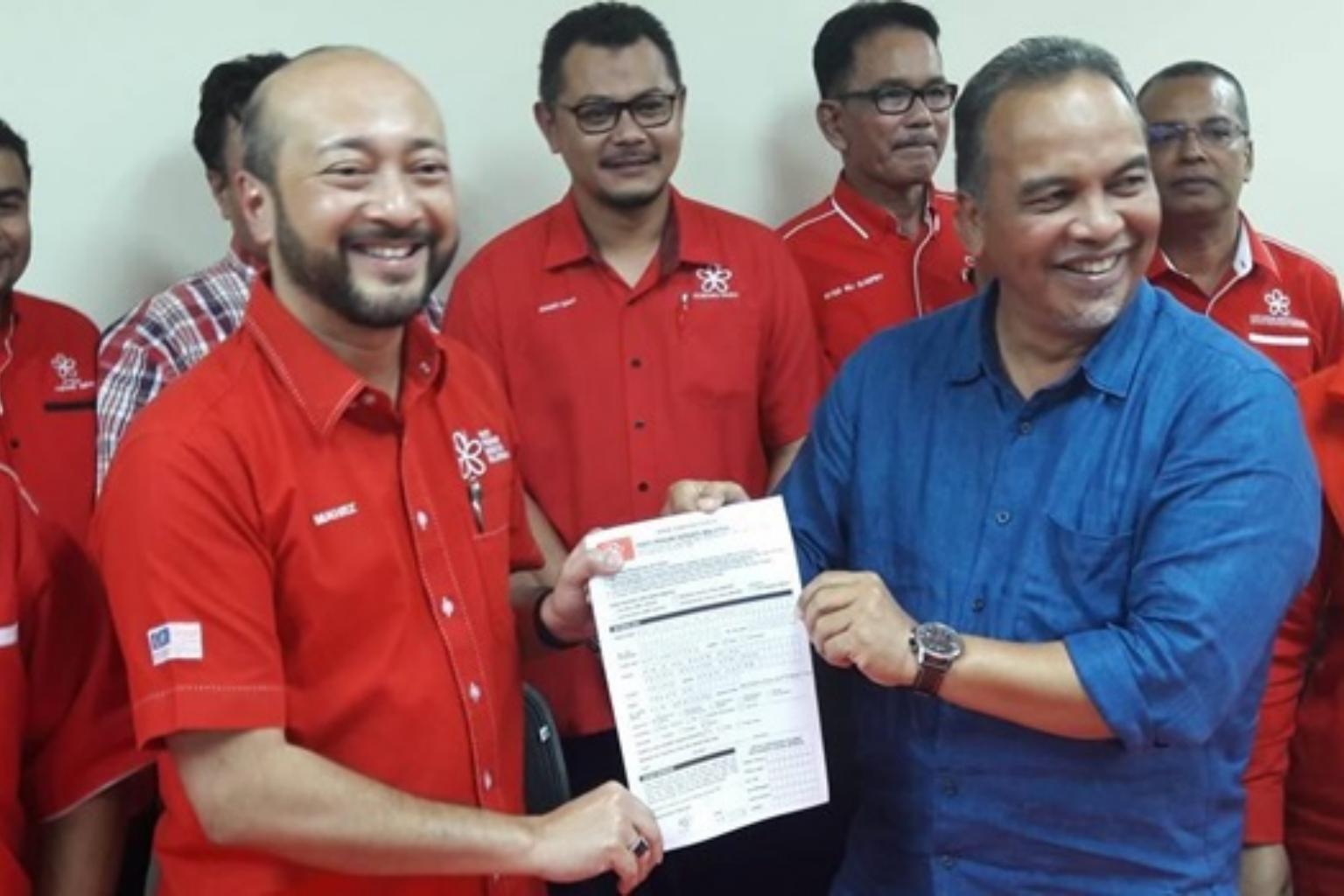Timeline of Parti Islam SeMalaysia in the past decade
Sign up now: Get insights on the biggest stories in Malaysia

Datuk Seri Mukhriz Mahathir (left) receiving the membership form from Datuk Amiruddin Hamzah in Alor Setar.
PHOTO: THE STAR / ASIA NEWS NETWORK
Follow topic:
KUALA LUMPUR - Anak Bukit assemblyman Amiruddin Hamzah announced on Sunday (Nov 26) that he had left Parti Islam SeMalaysia (PAS) to join Dr Mahathir Mohamad's Parti Pribumi Bersatu Malaysia (PPBM).
It is the latest setback for the opposition Islamic party since it lost the swing state of Kedah in the 2013 polls.
Here's a quick look at PAS in the past decade:
2007 - With firebrand former deputy premier Anwar Ibrahim released from prison and campaigning for the opposition, PAS forms an electoral pact with the rest of the opposition as the Abdullah Badawi administration struggles to handle rising fuel cost and the perception of worsening crime, corruption and ethnic strife.
2008 - The opposition bloc denies Barisan Nasional its customary two-thirds supermajority in Parliament and wins five states for the first time in history. PAS, along with the Chinese-dominated Democratic Action Party (DAP) and Anwar's multiethnic Parti Keadilan Rakyat (PKR), later forms the Pakatan Rakyat coalition. The Islamic party's acceptance in mainstream politics is further marked by the decision to allow its leaders to be chief minister in three of the five states which the alliance won.
2011 - The issue of implementing the Islamic criminal code, known as hudud, comes to the fore. The controversial issue is close to the heart of PAS, but the DAP opposes it. The heated quarrel over the set of laws, which prescribe stoning to death and amputation as punishments, is temporarily cooled when the alliance decides that PAS could continue to campaign for it, but a decision to implement it would need the consensus of all three parties.
2013 - Pakatan Rakyat makes further gains in Parliament, as Barisan Nasional lost the majority of votes for the first time. But it could not claim enough seats to form the federal government and in fact, has to cede two PAS-controlled states. DAP and PKR's majority in Penang and Selangor become stronger, sparking debate on whether PAS has become the junior member in the coalition, with its vast machinery only serving the interests of its partners.
2015 - The hudud debate resurfaces as PAS seeks to regain its waning Malay Muslim support by tabling Bills to turn it into state law. This not only splits Pakatan Rakyat, but also PAS as a group of leaders still seeking to work with the rest of the opposition left the party and formed Parti Amanah Negara.
2016 - PAS president Abdul Hadi Awang tables a motion to allow Islamic courts to mete out harsher punishment, and Umno allows him to present it in Parliament. It is just one of many examples of cooperation between the two main Malay parties in Malaysia since the breakup of Pakatan Rakyat. However, both parties insist the relationship is only to further Islamic interests, and will not be a political pact.
2017 - A schism begins to form in PAS over Datuk Seri Hadi's closeness to Umno, with some preferring to find an electoral compromise with Pakatan Harapan (PH), formed by Anwar and former premier Mahathir Mohamad. The alliance includes four parties: PKR, Parti Pribumi Bersatu Malaysia, DAP and Amanah.
In the same way that three-way battles could scupper Harapan's chances of winning federal power or retaining Selangor, they could also see PAS losing Kelantan, which it has governed since 1990.

